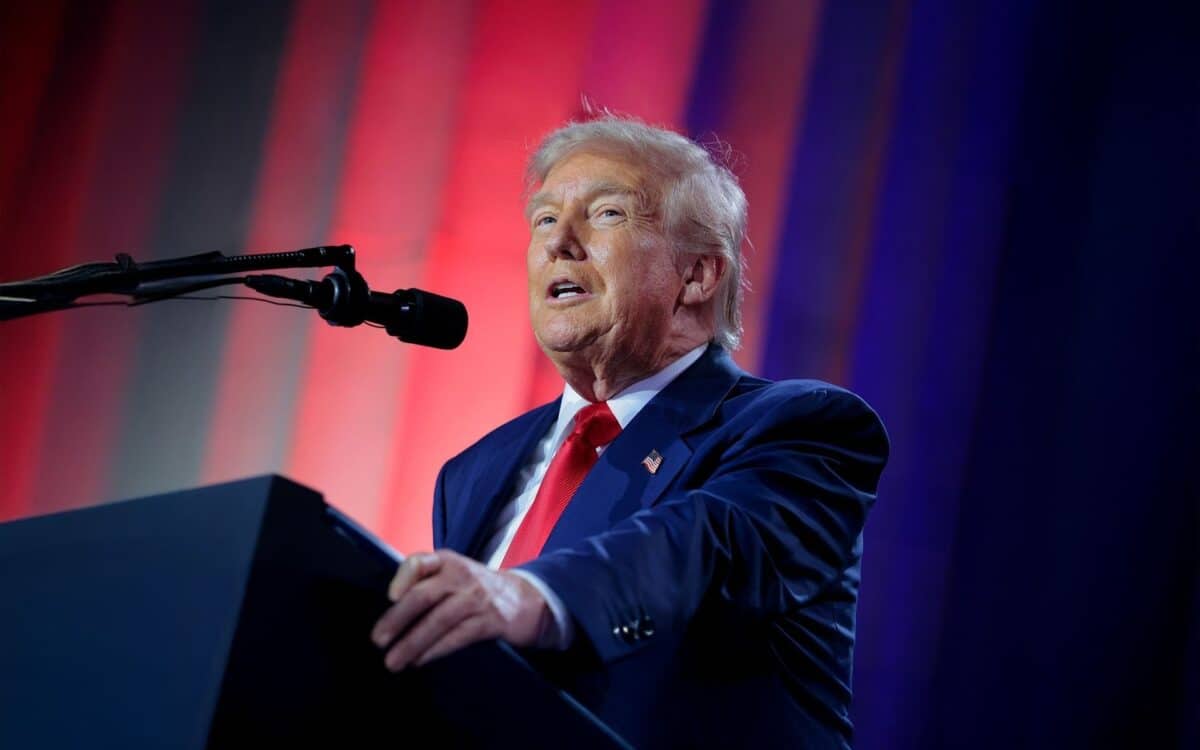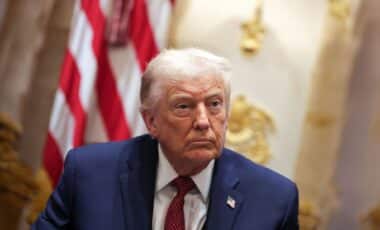In a highly symbolic gesture, Donald Trump has announced his intention to rename the current U.S. Department of Defense back to its historic title: the Department of War. It’s a strong ideological statement that reignites debate about the image the United States wishes to project regarding its military might.
A Space Monster: This Ship Can Carry 2,400 Passengers on an Unimaginable Journey
A Return to Military Roots, Desired by Donald Trump
On August 25, 2025, during an official meeting in the Oval Office with South Korean President Lee Jae Myung, President Donald Trump publicly expressed his wish to change the name of the Department of Defense—reinstating its former designation, the Department of War. This controversial proposal raises significant legal, political, and military implications.
“We want to be defensive, but we want to be offensive, too, if we have to be,” Trump declared at the White House on August 25, 2025, as reported by Politico. He justified the name change by pointing out that the U.S. achieved “unbelievable history of victory” when the agency was known as the Department of War.
According to Trump, this suggests the country needs to move away from a purely defensive stance. He further stated, “Everybody likes that. We had an unbelievable history of victory when it was Department of War.”
A Strategy Backed by Pete Hegseth, the Embodiment of the “Warrior Ethos”
This project is not isolated—it forms part of a clear doctrinal line embodied by Pete Hegseth, the current Secretary of Defense, whom Trump already ironically refers to as “Secretary of War.” During the NATO summit earlier this year, Trump had already raised this possibility, denouncing what he described as “political correctness” that had become omnipresent in American institutions: “Then we became politically correct and they called it secretary of Defense.”
Pete Hegseth, a former military member turned media figure, was appointed with the explicit mission of restoring what he calls the “warrior ethos”—a culture built on strategic aggressiveness, martial patriotism, and rejection of operational passivity.
On his personal X account, he even asked his followers whether they preferred the name Department of War to Department of Defense. The majority voted in favor of the first.
A Name Change with Heavy Legal Implications
This isn’t merely cosmetic. The current name, Department of Defense, stems from the National Security Act of 1947, which structured the modern U.S. military hierarchy. To make such a change, Congress would need to pass a legislative amendment.
As reported by the Maeil Business Newspaper, Trump appears to downplay this obstacle. However, several experts interviewed in the press point out that only legislative action can officially enact such a change. While it may begin with institutional communications or internal usage, any long-term realization will require validation from both houses of Congress.
A Semantic Shift Reflecting a Worldview
By reintroducing the term “war,” Trump is reaffirming a strategic posture: one of a nation that views itself, not as a bulwark, but as a dominant military actor on the global stage. This rhetoric resonates with parts of the conservative electorate, who view it as a response to the perceived decline of American power and the expansion of global conflicts.
At the same time, it raises concerns among diplomats, allies, and certain military officials, who worry that such a change could obscure the true intent of U.S. actions abroad. Semantically, “Defense” connotes a legitimate deterrent posture, whereas “War” suggests confrontation, attack, and aggression. For international partners, that distinction isn’t trivial.
Notably, no official statement has yet been released by the Department itself—aside from Deputy Press Secretary Anna Kelly, who defended the initiative by saying that “is why he has prioritized war fighters at the Pentagon instead of DEI and woke ideology,” according to Politico.
A Strategic Redefinition of the Department at the Center of Political Debate
What may seem like a minor name change is, in fact, part of a broader strategic direction openly assumed by Donald Trump: reaffirming an offensive posture, abandoning politically correct rhetoric, and restoring a tradition of militancy. Although its realization hinges on Congress, its symbolic impact is already significant: this proposed renaming constitutes a redefinition of the image the United States seeks to project to the world.








